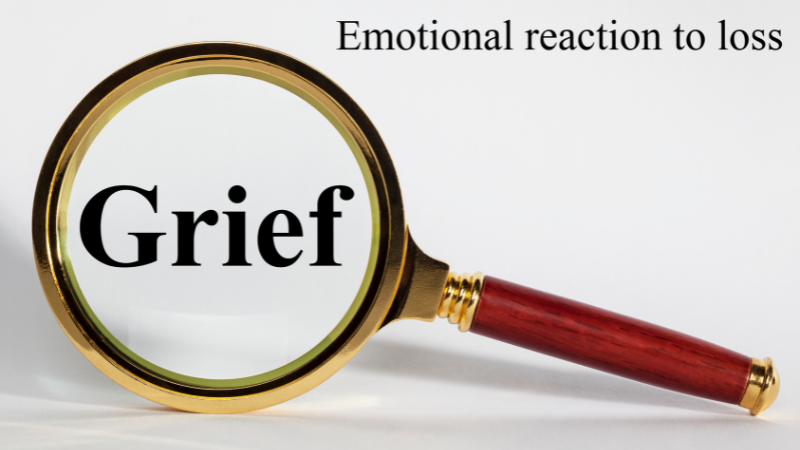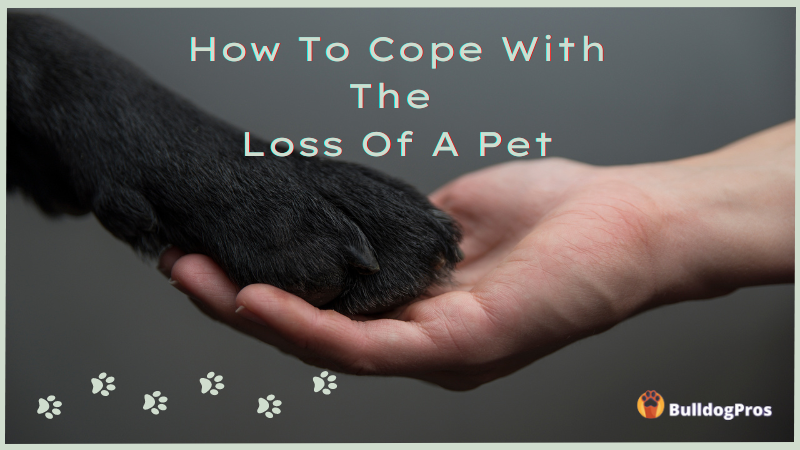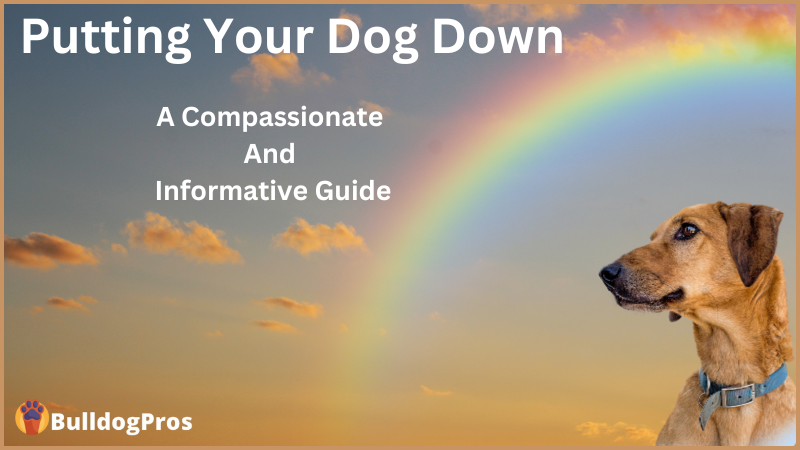Losing a pet is a difficult experience that can be devastating. The bond between humans and animals is strong, and it can be hard to cope with losing a beloved pet. However, it is possible to heal and move forward. How To Cope With The Loss Of A Pet will discuss the challenges of grieving for a pet and provide tips for coping with pet loss.
What to Expect When Grieving the Loss of a Pet

In grieving the loss of a pet, it’s important to recognize that grief isn’t a weakness or a sign of misplaced sorrow. Instead, it’s a natural reaction to losing a beloved pet who many consider a family member.
The loss of a pet can be a traumatic experience, especially if the pet was a close companion or provided emotional support.
With the loss of a pet, it is normal to feel a variety of emotions and it can be different for everyone. It is common to feel sadness, guilt, anger, and even relief, and it is okay to take time to process your feelings.
It is also common to experience physical symptoms such as fatigue, headaches, and insomnia. It is important to be gentle with yourself and take care of your emotional and physical health during this time.
Video: How To Cope With The Loss Of A Pet
What are the Stages of Grief?
Understanding the stages of grief can be helpful in processing your emotions.
Elisabeth Kubler Ross, a famous Swiss-American psychiatrist, dedicated her career to investigating individuals close to the end of their lives due to terminal illnesses. She was well-known for her theory of the five stages of grief, which she wrote about in her book “On Death and Dying.”
Her research initially focused on those battling terminal illnesses, but her theory has been implemented in cases of all forms of loss, including pets.
According to Ross, the stages of grief typically include denial, anger, bargaining, depression, and acceptance. It is important to remember that these stages are not linear, you may not experience them all, and it is common to go back and forth between the stages.
Denial:
In the preliminary moments of mourning, refusing to accept the reality of the loss may be beneficial. Life appears to be pointless, incomprehensible, and too difficult to handle.
During this time, you deny the truth of the event. You may think it was an oversight and your beloved is still alive.
At this point, your mind is attempting to protect you from the excruciating emotions of sorrow.
Anger:
Grieving individuals can often feel angry and direct it at various people, such as doctors, family members, and even God. They might ask why this happened or who they can blame.
Even unexpected memories of their pet or hurtful comments made by others may cause anger.
While some people might be ashamed to feel angry, it is an entirely normal reaction to grief.
Bargaining:
Striking a bargain can be seen as an attempt to regain influence over various facets of life. People may promise to take on a certain course of action or make pacts with a higher power.
Depression:
Acknowledging and accepting what has already occurred is a part of depression. It can be expressed through several different emotions, such as despondency, tiredness, or an inability to derive enjoyment from life.
Additionally, depression can impact physical health, including problems with sleeping and weight gain.
Acceptance:
Acknowledging the fact that your pet is gone and not fighting against it, is referred to as acceptance. You bid farewell to your pet, but the memories will remain in your heart.
To Read More About The Stages Of Grief, See: Coping With Loss
Grieving A Pet After Euthanasia
Some studies have found that people who decide to euthanize their pets experience a range of grief reactions similar to those who lose their pets to injury or illness.
Talking with a counselor or therapist can be helpful if you are experiencing a lot of guilt about the decision to euthanize your pet.
How to Help Yourself Heal

Grieving for a pet can be a difficult and painful process. It is important to acknowledge your emotions and allow yourself to feel them. It is okay to cry, to be angry, or to feel guilty. Taking care of your physical health during this time is also essential.
The support of family, friends, or pet loss support groups can be invaluable. Finding a pet loss counselor who can provide emotional support can also be helpful.
Additionally, it can be helpful to find activities that help you express your feelings, such as journaling, writing, or creating art.
It is also important to find ways to honor and remember your pet. This can be done through activities such as planting a tree, creating a photo album, or writing a letter. These activities can be a way to commemorate your pet and find closure.
Allow yourself time to process. Grieving is a process that should take as long as it needs to. Don’t try to rush or force yourself to get over the loss of your pet.
Tips for Coping with Pet Loss
Here are some tips for coping with pet loss:
- Acknowledge your emotions and allow yourself to feel them.
- Take time to process your emotions.
- Reach out for support if you are struggling with grief.
- Find activities that help you express your feelings, such as journaling, writing, or creating art. Writing a grief-diary or blog post about your pet’s death can help you process and heal from losing your beloved pet.
- Connecting with other pet owners through social media and online forums is a helpful way to share your experiences and comfort each other.
- Find ways to honor and remember your pet.
- Take care of your physical health during this time.
- Give yourself time and space to grieve.
Activities to Honor and Remember Your Pet

Finding ways to honor and remember your pet can be a helpful part of the grieving process. Here are some activities you can do to honor and remember your pet:
- Plant a tree in your pet’s memory.
- Create a photo album or a scrapbook.
- Write a letter to your pet.
- Create a memorial garden.
- Donate to an animal charity in your pet’s memory.
- Participate in a pet remembrance ceremony.
- Write a poem or a song about your pet.
These activities can be a way to commemorate your pet and find closure.
Getting Another Pet
If you’re grieving the loss of your pet, it’s important to mourn and wait until you’re emotionally ready to open your heart and home to a new pet.
It’s vital to avoid comparing your new pet with your old one, as this can lead to grief overloading and unhealthy attachment. It’s essential to select an animal with whom you can build a long, loving relationship.
Volunteering at a shelter or rescue group can be a good way to decide if you’re ready to become a pet owner again.
FAQs
How does losing a pet affect your mental health?
The loss of a pet can significantly impact your mental health, both immediately after the pet dies and over time.
Immediately following the death of a pet, grieving individuals may experience feelings of sadness, loneliness, and emptiness. They may also feel guilt or shame because they could not provide their pet with the care it needed.
However, everyone will experience different levels of grief, and it’s important to reach out for support if these feelings do not dissipate over time.
How long does the grieving process of a pet last?
For some people, the process may take days or weeks, for others, it might be months or even years. Grief is an individual process and shouldn’t be compared to someone else’s.
Do surviving pets experience grief when another pet in the household dies?
There is no definitive answer to this question as the emotional experience of a pet loss can vary depending on the pet and their relationships with family and friends.
However, it is generally accepted that pets tend to experience a range of emotions when another pet in their family or household dies, including sadness, loneliness, and even relief.
Popular Posts
Conclusion
When a pet dies, the loss is profound. The grieving process for pet owners can be difficult, and the support of family, friends, or a pet loss support group can be invaluable.
Losing a pet is a difficult experience, but healing and moving forward is possible. It is essential to recognize that grief is a process, and it takes time to heal.
It is also important to be gentle with yourself and take care of your emotional and physical health during this time.
With the proper support and understanding, it is possible to cope with the loss of a pet and find ways to heal.
By staying focused on healing and mourning the loss of your pet, you can process your grief and move forward with a brighter outlook on life, and maybe one day, when the time is right, bring a new pet into your life.
Our hope in bringing you How To Cope With The Loss Of A Pet is for you to see that grief for a pet is a normal experience and one you can get through in time.
Have you experienced a loss of a pet? What did you do to help you through? Please comment below.



